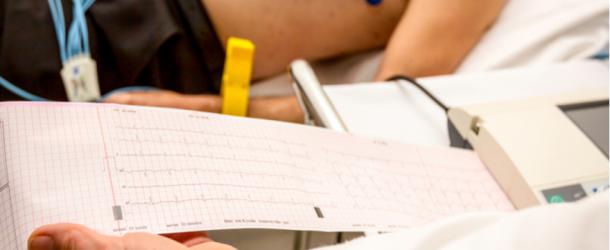Introduction
Welcome to our comprehensive guide on EKG practice tests for medical professionals. In this article, we will delve into the importance of EKG testing, the skills required, and how to ace your ekg practice test with flying colors. Whether you’re a seasoned healthcare professional or a medical student preparing for exams, mastering EKG interpretation is crucial for providing quality patient care and advancing in your career.
Understanding EKG Testing
What is an EKG? An electrocardiogram (EKG) is a diagnostic test that measures the electrical activity of the heart. It records the heart’s rhythm and can detect abnormalities such as arrhythmias, heart attacks, and heart disease.
Importance of EKG Testing EKG testing plays a vital role in diagnosing and monitoring various cardiac conditions. It helps healthcare providers assess heart function, identify abnormalities, and develop treatment plans tailored to each patient’s needs.
Skills Required for EKG Interpretation
Medical Knowledge A solid foundation in cardiology is essential for interpreting EKGs accurately. Understanding cardiac anatomy, physiology, and common cardiac conditions is key to identifying abnormalities on an EKG.
Technical Proficiency Proficiency in using EKG machines and interpreting EKG waveforms is a fundamental skill for healthcare professionals. This includes recognizing normal vs. abnormal EKG patterns, understanding lead placement, and troubleshooting technical issues during testing.
Critical Thinking EKG interpretation requires critical thinking skills to analyze complex waveforms, differentiate between benign and concerning findings, and make informed clinical decisions based on the EKG results.
Communication Effective communication skills are crucial for conveying EKG findings to colleagues, consulting physicians, and educating patients about their cardiac health. Clear and concise documentation of EKG interpretations is also essential for medical records and continuity of care.
Acing Your EKG Practice Tests
Study Resources Utilize reputable study resources such as textbooks, online courses, and practice EKG exams to enhance your knowledge and test-taking skills. Practice identifying EKG rhythms, understanding EKG measurements, and interpreting diagnostic findings.
Hands-On Experience Gain hands-on experience by participating in clinical rotations, observing EKG procedures, and practicing with EKG simulation software. Real-world exposure enhances your confidence and proficiency in EKG interpretation.
Continuing Education Stay updated with the latest advancements in EKG technology, guidelines, and protocols through continuing education programs, workshops, and professional conferences. Continuous learning enhances your expertise and ensures quality patient care.
Conclusion
Mastering EKG interpretation is a cornerstone skill for medical professionals involved in cardiac care. By honing your medical knowledge, technical proficiency, critical thinking, and communication skills, you can excel in EKG practice tests and contribute to better patient outcomes.








